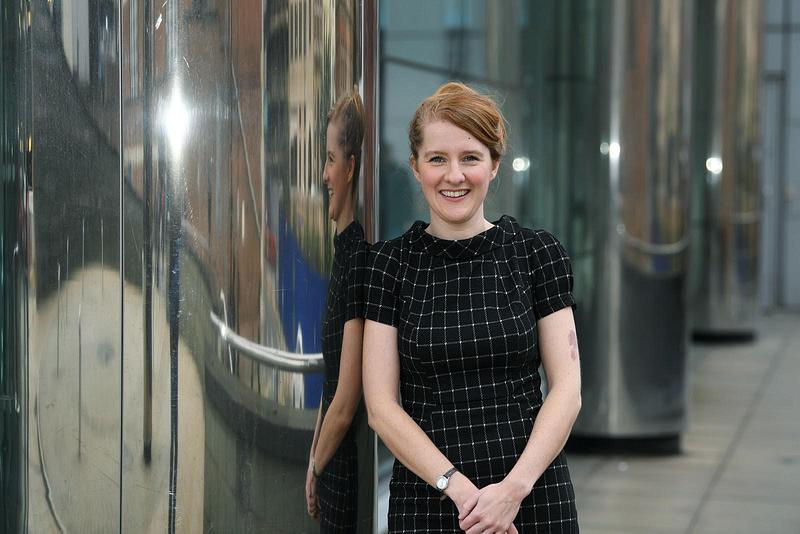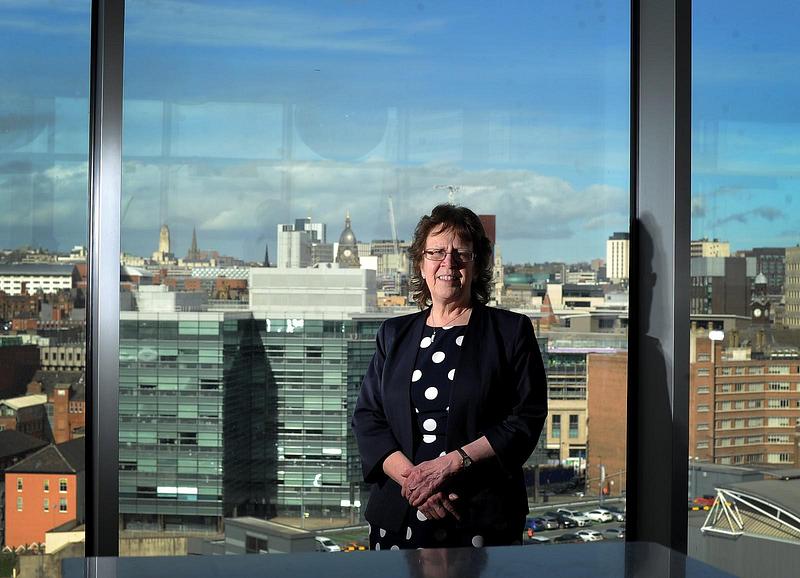Boris Johnson's government is being urged to make his “levelling-up” rhetoric a reality by expanding a pioneering educational scheme which has raised standards in three areas of Yorkshire across the whole of the North.
Children's Commissioner for England Anne Longfield said the success of the “opportunity areas” in Bradford, Doncaster and the North Yorkshire coast, where children's reading, writing and maths scores have risen above the national average, should be replicated region-wide.
Doing this, she said, would create a “relentless push for a rebalancing, which identifies the gaps and what needs to happen to close them”.
Since the original policy was announced in 2016 by former Education Secretary Justine Greening, there has been £90m in investment to cover the period up to August 2021.
During the initial three years, when £72m was spent, children’s reading, writing and maths scores at primary school level increased in the three areas by 12 per cent above the national average - with Bradford seeing the biggest improvements - 16 per cent.
There, 200 children across 100 schools also benefited from a ‘glasses in classes’ project, which saw health teams work with schools to ensure children who failed an eye test were provided glasses in school to improve maths and literacy rates
The North Yorkshire Coast has seen a teacher recruitment campaign attract more than 185 vacancies across 43 schools, bringing 38 teachers and support professionals from outside the area.
Yet despite the inroads, Northern education chiefs have today warned that the Government must prioritise education in Chancellor’s Rishi Sunak’s spending review in the autumn.
Rotherham-born Former Education Secretary Justine Greening, the architect of the opportunity areas programme during her time in government, said there was still a lack of opportunity in northern England.
She said: "We need more opportunity on the doorstep for young people coming out of the education system in places like Rotherham where I grew up and Doncaster, Bradford and North Yorkshire.
“I would like to see maybe another 50 or 100 opportunity areas across the country... this absolutely needs to include the North and Yorkshire.”
An underfunded education system in the North is also set to face further pressure in the wake of the coronavirus pandemic, as existing inequalities worsen.
New analysis for the Yorkshire Post from the Northern Powerhouse Partnership (NPP), shows that Yorkshire schools that are lower in national league tables move up 374 places on average when their students’ backgrounds are taken into account. One school in Hull moved up 1,330 places.
The Partnership said much of the attainment gap between pupils in the north and those in London existed because there is such a high proportion of pupils with disadvantaged backgrounds.
Once backgrounds are reflected, many Yorkshire schools in fact outperform those outside the North of England.
NPP director Henri Murison said: “The real opportunity is for this government to tackle educational disadvantage once and for all and make that a key plank of levelling up - otherwise parents and others who may have chosen to vote conservative at the last election will be left asking themselves why they did.”
Professor Sir Chris Husbands, the chair for the Doncaster opportunity area, said: “Education is absolutely critical to the levelling-up agenda. The challenges we face will be solved by education, education and education."
Chair for the Bradfordford opportunity area, Anne-Marie Canning, said: “Without a good education we are really losing the engine of social mobility and that is why education needs to be put as the top priority.
“It’s one of the great fallings of this current decade that children in the North aren’t getting a good enough shot at a decent life.
A spokesperson for the Department of Education said “Every young person deserves a world-class education, no matter where they grow up or what school they go to.
“That is why the Prime Minister has announced a transformative 10-year rebuilding programme for schools all over England, with substantial investment in the North and the Midlands, and every school will benefit from the second year of our school funding settlement, worth £14.4 billion over three years - the biggest increase in school funding in a decade.”
"Some schools in the North are still fighting for scraps"
A concerted effort to improve northern schools and bolster children’s ambitions, akin to that which saw standards raised in the capital by the Labour government of the early 2000s, is “vital”, the Children’s Commissioner for England has said.
Anne Longfield made the call as Northern education chiefs and charities warned of the widening educational gap of the most vulnerable children as they face added pressure and challenges due to the effects of the coronavirus pandemic.
Mrs Longfield, who has worked with vulnerable and disadvantaged children for more than 30 years, told The Yorkshire Post: “I would like to see a Northern Challenge for schools. London’s education system has had rocket-boosters under it... while some schools in the North are still fighting for scraps.
“There is a zest in the North, the North is ambitious for its future. There is a really good group of people in civic life, and charities and others that are all ready to go on this but they need the Government to back the North and also provide that leadership and the kind of vehicles needed to make it happen.
“It can be devised by the North and run by the North.”
A child receiving free school meals in Hackney is three times more likely to go to university than a similar child in Hartlepool, the Children’s Commissioner for England said.
Last year in Yorkshire and the Humber, 11,000 children left the education system at 19, after 14 years of full-time education, without five GCSEs or the technical equivalents. Of these, 30 per cent were children eligible for free school meals.
Of the top 10 areas in the country where children leave without even the most basic level of qualifications, four are in the Northern Powerhouse region – Doncaster, Wakefield, Leeds and Knowsley.
“That kind of disparity absolutely shouts of evidence that some children have fewer opportunities in parts of the country than others,” said Mrs Longfield.
“We need to get them the qualifications and the support children need to get there, but we also need to be ambitious for them - because otherwise we are going to have a generation of children from the North where the promise of the Northern renewal fails to deliver and those children need it to deliver.”
Mrs Longfield called for long-term investment in the provision of early years initiatives in the North, and then at each stage of a child’s development, to improve life chances as for decades the education system has been beset with inequalities based on region which is stifling children’s ambition in the North.
Mrs Longfield said: “If children in the North are not provided with this opportunity we will see a generation of children who fall behind, fall out of school, don’t reach their potential or move out of the area to be able to take up opportunities elsewhere.”
And while she welcomed the Government’s additional £18m for an additional fourth year of funding to the opportunity areas, with the allocation of more than £9m in the North of England including £1.7m in Bradford, £1.4m in Doncaster and £1.2m to the North Yorkshire Coast, she stressed children and education must be a priority in Yorkshire as lockdown restriction continue to ease.
She said children need to be at the” top of their game” as recession hits.
“We know there are going to be tough times ahead,” she added. “For the children who haven’t been leaving school with the right levels of skills and the right qualifications or the right prospects to be able to thrive, they are going to be doubly hit by that.
“So we need those children to be confident, to be skilled and have the resilience they need not only to get through this recession but also to get on the front foot and play their part in rebuilding the North.”
Prioritising education in commitment to ‘levelling up,’ says the Government
The Government insists it is prioritising education in its commitment to levelling up – including during and after the pandemic.
It said plans are in place to tackle these disparities in the North and Yorkshire following these unprecedented times.
A Department of Education spokesperson told The Yorkshire Post: “We are addressing the impact of lost time in education as a result of the coronavirus pandemic through our £1bn catch up fund, including targeted funding to support the most disadvantaged pupils and thousands of young people – including in Leeds and Sheffield – will get free nutritious food and enriching activities this summer thanks to our £9m Holiday Activities and Food programme.
“We are also investing £90m over four years in our 12 Opportunity Areas – including three here in Yorkshire – to increase opportunities and outcomes for young people and support those hardest hit by the pandemic, with up to £24m in Opportunity North East to improve outcomes and boost the aspirations of young people in the North East.”
"There is a huge gap in education and skills"
This autumn’s comprehensive spending review should be used as a turning point to tackle educational disadvantage “once and for all” in the North, the flagship project to boost investment in the region has said.
The Northern Powerhouse Partnership (NPP) director Henri Murison said if the Government is to deliver on its levelling-up commitment, and for the ‘blue wall voters’ that elected Conservative MPs for the first time in December, it needs to invest for the long term in improving education by creating a level playing field of opportunity for children in the North.
He told The Yorkshire Post: “There is a huge gap in education and skills between the North and the rest of the country.
“If the levelling up agenda is going to mean anything then clearly economic performance in the North of England is directly constrained by our ability for every young person and child to get the best start in life.”
New analysis for The Yorkshire Post from the Northern Powerhouse Partnership’s Fairer Schools Index, developed using work by the Centre for Multilevel Modelling at the University of Bristol, shows that Yorkshire schools that are lower in national league tables shoot up 374 places on average when their students’ backgrounds are taken into account.
Once backgrounds are reflected, many Yorkshire schools outperform those outside the North of England, analysis showed.
Mr Murison said: “If action isn’t taken the impact and damage done to children’s lives will be huge.
“The reality is you cannot correct later for children getting a poor education experience and we know that there are steps the Government could take to invest more and ensure that money is well spent on those young people and children who need that investment the most.”
Mr Murison said using the strengths and successes of Yorkshire’s ‘opportunity areas’ and investing and expanding the education scheme over a sustained period should be a priority.
He said: “Opportunity areas are an important innovation. But they don’t have massively long-term funding, they still have to work to the constraints of being short term projects.
“They have been a valuable experiment - but they will only be really meaningful if they are in a larger number of places. The fact that there are only three in Yorkshire is the problem.”
The NPP is calling on the Government to devolve powers over education to provide “left behind” children in Yorkshire and the North with the opportunity to “thrive” and have ambition after underinvestment for decades.
“The current approach to education improvement in this country does not recognise the fact that you can’t pull all those levers from Whitehall, which is why we need to see a new deal for education that focuses on dealing with educational disadvantage, and new ‘opportunity areas’ in those places that haven’t benefited from the policy” Mr Murison said.
“They need to be developed out on the ground by different organisations and communities in the North.
“The opportunity we have in the North of England is to make a real impact in terms of driving up education standards but the Government needs to trust local communities to deal with the problems they have got and come up with solutions.”
New analysis for The Yorkshire Post from the Northern Powerhouse Partnership’s Fairer Schools Index, developed using work by the Centre for Multilevel Modelling at the University of Bristol, shows that Yorkshire schools that are lower in national league tables shoot up 374 places on average when their students’ backgrounds are taken into account.
Education at forefront for Yorkshire and the Humber, says the Government
The Government insists it is investing for the long term in education across Yorkshire and the Humber including extra support during and after the pandemic to aid recovery.
A spokesperson from the Department of Education said disadvantaged pupils in schools and colleges in the region will also benefit from the Government’s £1bn Covid catch-up fund, with £350m designated for tutoring for those who need the most support.
“From the second half of the 2020/21 autumn term, the National Tutoring Programme will provide support to disadvantaged pupils aged 5-16 in two ways: schools in all regions will be able to access heavily subsidised tuition from organisations on a list of approved partners, while some of the most disadvantaged schools will be supported to employ in-house academic mentors to provide intensive support to pupils.
“As part of the tutoring fund, a one-off, ring-fenced grant of up to £96m will be available for colleges, sixth forms and all 16-19 providers, to provide small group tutoring activity for disadvantaged 16-19 students whose studies have been disrupted.”
"Unfortunately we’ve had to turn some families away"
Across Yorkshire opportunity areas, vital initiatives have been improving the lives and creating opportunities for the most vulnerable and deprived children, as part of the pioneering education scheme to raise standards and improve the worst of the education inequalities in the region.
Innovative projects, including those that have had to adapt due to the coronavirus pandemic, have spoken out about educational successes and challenges facing communities as improvements made over the past four years are in jeopardy under the shadow of Covid-19.
In Bradford, for mother-of-three Kirsty Ware, who has home-schooled her children through the pandemic, including an eldest son diagnosed with learning difficulties, on top of financial difficulties, said an adapted community education initiative aptly named ‘lessons on wheels,’ has been a “life-line” during difficult times.
The 35-year-old is one of more than 100 families with 280 children up to the age of 16, who have received an essential education and food pack delivered to their homes fortnightly, by Ravenscliffe organisation The Gateway Centre, during lockdown.
The packs were designed to help bridge the gap between school attendance to reduce learning loss throughout the year of young families in one of the most deprived areas of the city.
Her son’s learning difficulties, while having limited access to digital devices and financial worries has made homeschooling a difficult task.
The stay-at-home mum and her young family have relied on meals provided through the initiative, essentials from the local food bank and Universal Credit and Child Tax Credit as they have been stretched financially during the coronavirus outbreak.
She told The Yorkshire Post: “It’s been quite difficult having them all at home. Financially it’s been a challenge just to have enough money to last the week and manage to have the food in for the children.”
Miss Ware said being able to receive the ‘lessons on wheel’ packs, which have an emphasis on maths, english and science, was essential to aid with homeschooling her children Billy, five, and Millie, eight, who were unable to attend Holybrook Primary School alongside Harley, 10, a Our Lady and St Brendans Catholic Primary School student. The family also only had access to one family laptop up until the last day before the end of the summer term when her daughter and eldest son received laptops from their schools.
“One laptop between three children was so hard at first, but we managed to work it out as best we could,” Miss Ware said. “It has been a challenge especially as my oldest child has learning difficulties, so that needs extra time going over the work and tasks and I’ve gone to bed on many evenings thinking how does a teacher do this?”
She added: “But things would have been a lot worse for us as a family without this support.
“The materials, activities and food have been really good. I would consider us to be in a lucky postcode in a way to receive this.”
Currently the scheme, rolled out by the Bradford Parent and Young People’s Partnership Service with extra funding from the city’s opportunity area can only be accessed by residents who live in Ravenscliff, due to capacity and resources.
Natalie Woodley, 30, who leads on the programme stressed the need to expand the initiative due to the high demand, and high rates of deprivation within the city and pockets across the region which have been brought to the fore by the coronavirus.
“There is a greater need. Unfortunately we’ve had to turn some families away,” she said.
“We have been inundated from the beginning, our phones were ringing off the hook from people.
“So many families have really struggled over this time, if we hadn’t have provided the food some families would have gone hungry. Many have been very stretched with the universal credit, it has had a backlash on a lot of our parents.”
She said a “holistic community approach” needed to be implemented in deprived areas across Yorkshire to boost the level of good education enjoyed by children living in the capital and the South.
“This project is just a drop in the ocean. We want to be able to expand our team so we can reach more people in need.
“We are calling for a community joined up approach - there needs to be the drive for a holistic programme as it goes far beyond education and beyond the school gates.”
Anne-Marie Canning, the chair for the Bradfordford opportunity area, added: “The digital divide has been very pronounced in communities and children not having access to those materials, digital devices and connections needed to do their homework.
“Being able to deliver ‘lessons on wheels’, and drop off meals, lesson plans, and materials like paper and pencils has been essential.”
Historically educational establishments at seaside outposts have faced a host of problems, including staff recruitment and retention, however fond childhood seaside memories from the North Yorkshire Coast and the financial incentives were a big enough draw to make Joanne Cassell-Osowski relocate from Barnsley to Whitby recently.
Ms Cassell-Osowski, 40, who moved to Sleights at the beginning of this month with her partner Stefan Osowski, 42, will take up her assistant director of science post at Caedmon College, a mixed secondary school and sixth form in Whitby, this September. There has been much debate in recent years over future provision for Whitby’s Caedmon College and Eskdale School and with formal consultations launched by governors in 2018. Now, in the wake of support for proposals, the two federated last year, creating a new sixth form while maintaining two sites, separate headteachers, budgets and staff.
Ms Cassell-Osowski is one of 24 teachers recruited from outside the area as part of the North Yorkshire opportunity area recruitment campaign over the last three years.
The teacher, who grew up in Worsbrough amidst the pit closures and mining strikes and was the first in her family to go to university, has taught across Yorkshire including schools in Dewsbury and Barnsley since qualifying in 2003 and received a recruitment and retention bursary of £2000 and a relocation bursary of £8000.
She stressed the need to expand the recruitment campaign across the North to attract more teachers as the drain for years and years on resources for the North has resulted in pupils achieving GCSE grades that are significantly worse than their counterparts in London.
“It’s really important for this kind of thing to be happening all over the North. In industry you have people being given bursaries and it just doesn’t happen within teaching.
“It should be happening far more widespread in order to create opportunities for people to be able to move to areas in the North and take on these roles and make a difference.”
The University of Sheffield graduate added: “The statement leveling-up the North isn’t actually accurate, I think what they need to be doing is boosting the North above what we are at the moment.
“We could do with some reparation for the years and years of underfunding that we’ve had in the North. Education is absolutely key to be able to allow people to move forward with their lives.”
Sir Martin Narey, the chair for the North Yorkshire Coast opportunity area, said: “We’ve had a very focused look at teacher recruitment and retention - addressing the fact that it’s difficult getting teachers here.
“It may be because teachers might fear a bit of professional isolation - but we have brought a lot of new blood in.
“At the beginning of September for the first time in years there were no teacher vacancies in the opportunity area - so that is the biggest success.”
"We need to break down those barriers between health and education"
Over the last three years a joined up approach in the Bradford opportunity area between education and health is its ‘glasses in classes’ project to make sure children who fail an eye test are provided glasses in school to learn to improve maths and literacy has seen 218 children across 100 schools in the city benefit.
The Education Endowment Foundation (EFF), initiative was developed by a team at Bradford Teaching Hospitals NHS Foundation Trust, the University of Leeds and the University of Nottingham and rolled out across the Born in Bradford study with more than 4000 children having vision screening for the ‘glasses in classes’ intervention, with the aim to provide glasses to four and five-year olds who need them in order to improve their maths and reading skills.
Professor Mark Mon-Williams, lead academic for the project, from the University of Leeds, said emphasis should be placed on early childhood development initiatives combining health and education.
Professor Mon-Williams, 55, who is also a lead at the Bradford Institute of Health Research, told The Yorkshire Post: “The success of ‘glasses in classes’ is recognition that we have spent too long trying to separate education and health. From our perspective if we want to improve the long term physical and mental health of our population than we really need our children to be well educated.
“We need to break down those barriers between health and education, we need to start thinking about how we can take care of children’s health needs within an educational setting.
“Don’t wait until children are completely derailed, get in early and remove these barriers - let them reach their potential and everyone wins.”
Anne Marie Canning MBE, the chair for the Bradfordford opportunity area, said: ““That sort of research can change the lives of children in Bradford, it could change the lives of kids in Yorkshire - it could change the lives of children in the UK and the world.
“I think that is the most promising thing coming out of Bradford right now. The work bringing health and education data together - that is not being done anywhere else in the UK, it really is phenomenal.”
Earlier research by Dr Alison Bruce, director of vision research at the Born in Bradford programme, found that failing to treat undiagnosed eye conditions – like short-sightedness, or astigmatism – can hold back the development of literacy skills.
While these issues can affect all children, those from disadvantaged backgrounds are more likely to go without a diagnosis.
"Around the country, the response to the pandemic has been heroic"
The Government’s 12 created opportunity areas, to support social mobility in some of the most disadvantaged areas across England include Doncaster, Bradford and the North Yorkshire Coast in Yorkshire.
Derby, Oldham and Blackpool are the other selected opportunity areas in the North; while West Somerset, Norwich Fenland and East Cambridgeshire, Hastings, Ipswich and Stoke-on-Trent complete the set.
The original policy was announced in 2016 by former Education Secretary Justine Greening. Initially the 12 areas were given £72m in funding for three years up to August 2020, with the investment to build on improvements in educational outcomes, careers advice and attracting teachers. The Government announced last November it was allocating a further £18m for a fourth year with the amounts for each opportunity area confirmed last month.
The largest beneficiary in Yorkshire will be Bradford with £1.7m, while Doncaster will receive £1.4m and the smallest amount £1.2m has been allocated to the North Yorkshire Coast. Nationally the largest recipient will be Blackpool, with almost £2m, while the smallest amount was awarded to West Somerset, with just under £1m.
Priorities for the fourth year include early speech and language development and teacher recruitment and retention, but the 12 areas will also be helping pupils “catch up on lost learning time” during partial school closures, the Government said.
It was also announced by Michelle Donelan, the Minister of State for Universities at the Department of Education, in charge of the opportunity areas project, that £1m of the project’s £18m in funding for 2020-21 will be ring fenced to support opportunity areas being “twinned” with places facing similar challenges in an effort to help disadvantaged pupils recover from the Covid-19 pandemic.
Ms Donelan said: “Throughout the coronavirus outbreak, the Government’s focus has been on making sure the most disadvantaged and vulnerable young people in our society get the support they deserve.
“Around the country, the response to the pandemic has been heroic, and each of the 12 Opportunity Areas has coordinated its approach to help those who need it most respond to immediate challenges.
“Now as we chart a course to recovery, we will build on the programme’s success so far to benefit young people in new areas and level up their life chances.
“We know that we can tackle these barriers more effectively when we come together across our different policy areas and by harnessing the expertise and experience of these dedicated professionals.”
"It is a continual battle to ensure that we get investment"
Yorkshire and the North needs an increased focus on giving children the best start in life or risk losing the “engine of social mobility,” an education leader from Bradford has said.
Anne-Marie Canning MBE, the chair for the Bradfordford opportunity area, said the recovery from covid-19 should be used to place long-term investment into education and empowering more local communities across the North of England and Yorkshire, to fight against generational educational inequalities.
Ms Canning, 34, who was previously the director of social mobility and student success at King’s College London, told The Yorkshire Post: “We know that getting a level of education and being able to access a decent job is critical to leading a good and productive life and those two things have not been easy for kids in Yorkshire to access for a number of years.”
She stressed that despite Yorkshire opportunity areas securing fourth year funding, with Bradford securing the second largest allocation nationally, more support was needed.
She said: “That is not a lot of money for the scale of the challenge. One of my concerns is how we sustain long-term improvement. This is a 10 to 20 year project not a four or five year project.
“It is a continual battle to ensure that we get investment into Bradford, Doncaster and other opportunity areas.”
Ms Canning, who grew up in Doncaster in the late 1980s and early 1990s and was the only individual out of her Doncaster school cohort of 2,500 kids to attend a Russell Group university, said it was a major concern that Yorkshire and the North East currently have zero social mobility hotspots, according to the social mobility index.
“It is genuinely quite shocking that there are no places,” Ms Canning said. “There are some areas of London that are similar to Bradford in terms of the demographic and the socio-economic profile of the area - but they are doing much better.”
She said there was a demand for more education powers to be devolved to Yorkshire and the North.
“Without good education we are really losing the engine of social mobility and that is why it is such a priority for a place for Yorkshire.
“We need to see a lot of power and agency to local communities in the North, we need to see more of that in government policy making and initiatives.”
"The challenges are about learning loss"
Education must be placed at “the heart” of the Government’s levelling-up agenda as added pressures from the coronavirus risk wiping out the gains of the past decade, Yorkshire education leaders have said.
Yorkshire education area heads say the successes and progression of the pioneering ‘opportunity areas’ scheme across the region is at risk unless a “long-term commitment” is made due to new challenges and added pressures caused by the coronavirus pandemic.
The call to action comes after a report from the Education Endowment Foundation in June found that the attainment gap caused by shutting down schools could wipe out a decade of gains from education policy. Analysis from those studies suggested that a near six-month closure of schools could lead to an attainment gap of between 11 per cent and 75 per cent, with a median figure of 36 per cent.
Sir Chris Husbands, the opportunity area head for Doncaster, told The Yorkshire Post: “The opportunity areas have made a really significant difference, but this will need long term sustained support and I really hope part of the levelling-up agenda is that government makes a long term commitment to additional resourcing.”
Professor Husbands, Vice-Chancellor at the University of Sheffield, who cited primacy literacy and extensive work with vulnerable children as the greatest successes in Doncaster over the last three years, said part of the £1.4m fourth year funding had already been allocated for re-engagement in schooling, to aid with covid-19 catch-up.
“Significant numbers of children will have been out of school for six months by September, the challenges are about learning loss. We want to put the system back together, it’s not going to be a short job. Covid has caused a pretty serious crisis.”
While in West Yorkshire, Anne-Marie Canning, the opportunity area head for Bradford, said a priority for the city would be focus had been shifted to tutoring to help children catch-up, parental engagement to help parents feel confident about taking their children back to school, and activity around employmentability.
Ms Canning, 34, said: “We are really leaning in on children who are at risk of need, because we know the labour market and the employment opportunity is going to be so radically different after covid, so really focusing on people who are really at risk of not being in employment or educational training.”
Sir Martin Narey, the opportunity area head for the North Yorkshire Coast, added: “It’s needed a bit of adaptation and flexibility and of course schools have been under bigger and wider pressures.
“The consequences of covid are very grave, much greater than the opportunity area budget can address but I think our £1.5m next year will make things easier for headteachers.”
The Yorkshire opportunity areas have reported great successes over the last three years amidst challenges posed by geography and embedded inequalities and there is a “committed” focus on continuing to raise the standards for children despite difficulties and added pressure most recently posed by the pandemic.
The North Yorkshire Coast opportunity area which covers Whitby, Scarborough and Filey, cited its recruitment campaign which has dealt with a total of 184 vacancies (149 teaching posts, 35 support posts), across 43 primary and secondary schools and attracted and recruited 38 teachers and support professionals from out of the area, who have relocated to North Yorkshire Coast, as it’s biggest success.
Going forward Sir Martin Narey, the chair for the North Yorkshire Coast opportunity area, told The Yorkshire Post one of the greatest challenges going forward was increasing the number of children for Whitby who stay on at sixth form. Currently there is only one sixth form in the area which had previously been in danger of closing before the opportunity area stepped in last year and saved it with funding.
He said: “We still don’t have enough children for Whitby opting to stay on at sixth form.
“A town the size of Whitby needs its own sixth form and if we want to get children to university and good universities which really improves chances of doing well in life - a sixth form is vital.”
Reflecting on the education scheme as a whole Mr Narey added: “I think there is something to be learned from having local involvement in managing some of these budgets, having local people drive the improvements and decide how that money will be spent has been very welcome and I expect that could be done on a wider basis.”
Meanwhile in Doncaster, where a leadership programme has seen 10 targeted schools improve outcomes for their 3,825 pupils in reading, writing and maths with an average increase in attainment for reading increase by 10 per cent from 54 per cent to 64 per cent.
And in Bradford over half (39) of the 60 primary and secondary schools requiring improvement or inadequate in Bradford in 2016 have improved by at least one Ofsted grade since being part of the opportunity area programme, which is expanding its school improvement programme to work with at least 19 schools in the area.
"Children in the North are suffering"
Rising child poverty in the North and years of “crisis-driven firefighting” is at risk of further entrenching generational education inequalities that have been ruthlessly exposed by Covid-19, a leading children’s charity has warned.
The Action for Children, director for policy Imran Hussain said the Government needs to prioritise ending poverty across the North and Yorkshire, to improve the education of its population, as it has seen an increased demand during the coronavirus from families on Universal Credit and Child Tax Credit struggle to afford food and basic utilities.
Mr Hussain, who has worked extensively in the field of child poverty and children’s charities over the past 20 years, told The Yorkshire Post the charity had seen an increased demand in services in the North, including providing emergency grants to new parents in Bradford so they could buy essentials like cots and prams and to young carers in its Harrogate service who need to provide food for their families while working online to continue their schooling during lockdown.
Mr Hussain, 44, said: “We already know children in the North are already suffering compared to their Southern counterparts, the big fear is that will get worse.
“We know what happens in school is affected by what happens at home and what happens in the early years. Both of those are flashing red at the moment for the children in the North. In the home we are seeing big increases in child poverty coming into the crisis, particularly in the North.”
The call to action follows on from the End Child Poverty coalition which includes Action for Children alongside the Children’s Society, Barnardo’s, NSPCC and the National Children’s Bureau revealing in May combined, local authorities in the North of England have seen a cut of 27 per cent to their funding compared to 21 per cent in the South of England.
Mr Hussain said emphasis should be placed on “over-investment” by the Government in increasing early childhood services in the North, to help fight against generational education inequalities and following through on it’s levelling-up promises.
He said: “Children services in the North have been underfunded. That means those local authorities will end up prioritising crisis intervention rather than early intervention in early years.
“Children have to be seen as part of the infrastructure, if we are going to increase the skills base of our economy for the Northern Powerhouse, the best way of doing that is through improving the education attainment of children living there - that needs the right long term investment and at the moment that isn’t happening.”
"Right across the North we are extremely concerned"
The coronavirus recovery should be used as a “moment in history” to empower and invest in devolution to combat the glaring generations of structural educational inequalities that start right from a child’s birth and is holding back the region’s communities, a leading Northern education charity has warned.
Fiona Spellman, the chief executive of the Northern education charity SHINE, told The Yorkshire Post: “Education has to be absolutely central to the Government’s leveling up agenda because we know that regional inequalities in our country start very young before children begin school.
“We need to have a recognition that some of these regional disparities are long term in nature so they need long term solutions and long term solutions and long term thinking.
“In a sense we have to think about the children and young people in the North of England now and ensure they get the best opportunities if we are really going to deliver on the Government’s agenda to level up opportunities across the country. We see education right from birth right through as being really central to that whole agenda.”
On Saturday, The Yorkshire Post reported on calls on the Government by northern education leaders to expand a pioneering educational scheme which has raised standards in three areas of Yorkshire across the whole of the North.
Yorkshire leaders said the recovery from covid-19 should be used to place long-term investment into education and empowering more local communities across the North of England and Yorkshire, to fight against generational educational inequalities.
Speaking exclusively to the Yorkshire Post on Saturday, Anne Longfield, the Children’s Commissioner for England, said that without targeted investment, “we will see is another generation of children who fall behind, fall out of school, don’t reach their potential or indeed move out of the area to be able to take up opportunities elsewhere”.
The leader of Leeds City Council, Judith Blake said: “Right across the North we are extremely concerned and we are particularly concerned that the Department for Education in a very centralised government system in England is probably the most centralised department of all.
“The argument from those areas that already have some form of devolutions and the areas that are moving towards it is that the Government needs to be far more open to our real experience and evidence that working on this agenda locally achieves far more of a sustainable outcome focused approach.”
Leaders in Yorkshire are lobbying for the Government to expand the pioneering ‘opportunity areas’ educational scheme which has raised standards in three areas of Yorkshire across the whole of the North.
Ms Spellman added: “It is about additional resource and the Government’s commitment to levelling up does have real quality financial backing but also that investment is targeted and spent in a way that can actually deliver change for children and for their families for whom levelling up remains more of an aspiration than a reality at the current time.”
A spokesperson for the Department of Education said a 10-year rebuilding programme for schools all over England, with “substantial investment” in the North and the Midlands, had been announced.
In addition, he said: “Every school will benefit from the second year of our school funding settlement, worth £14.4 billion over three years - the biggest increase in school funding in a decade.”
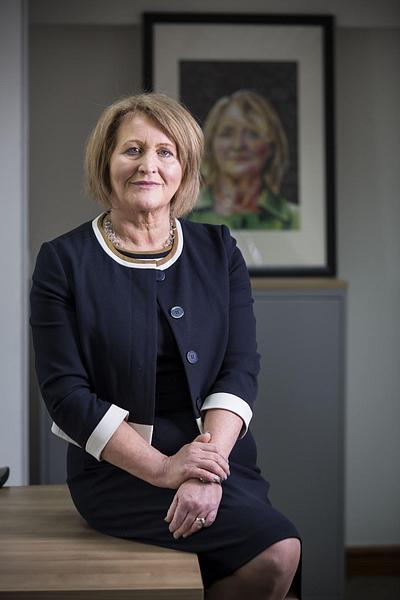
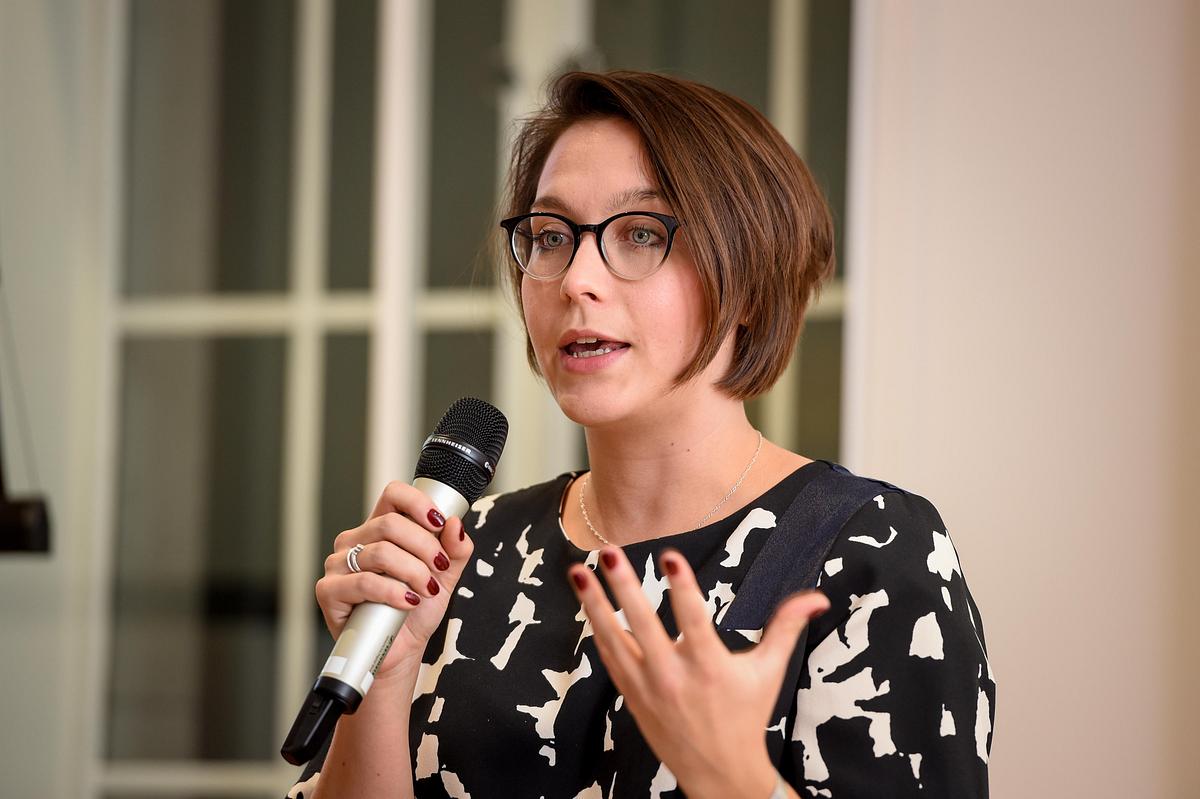
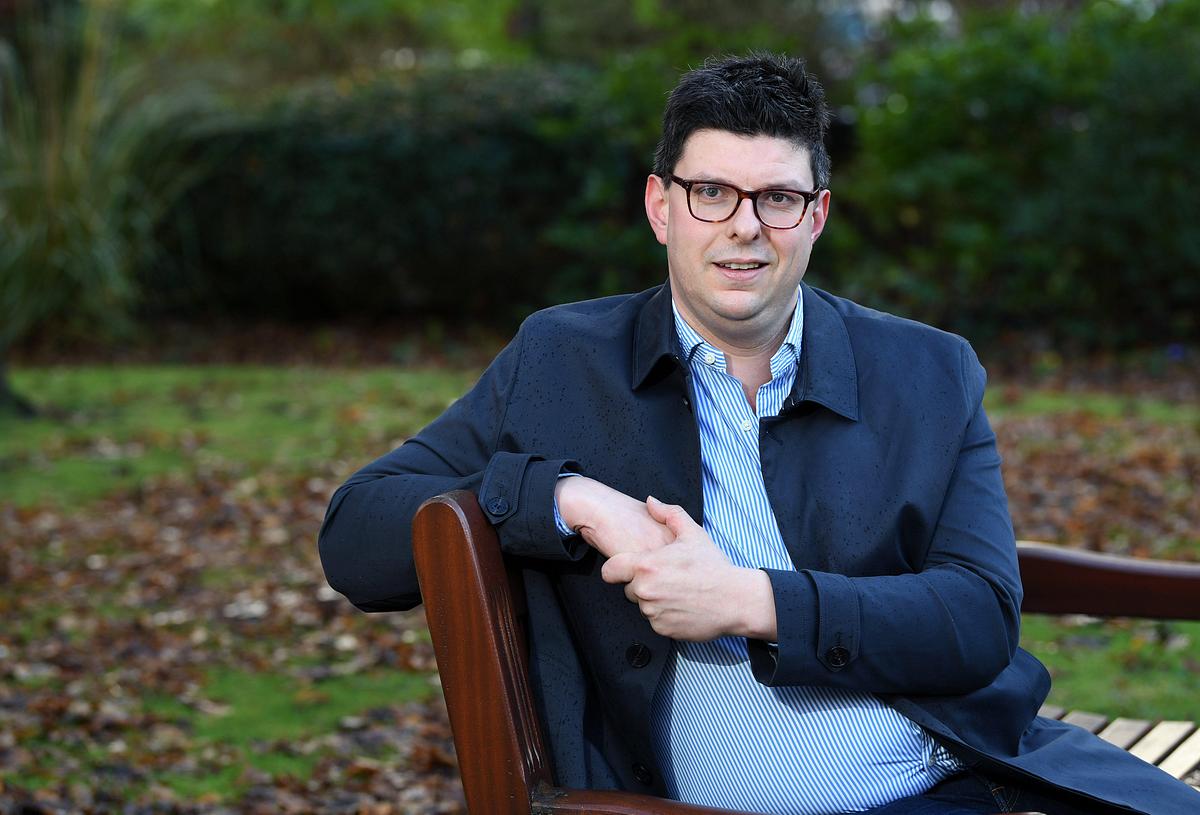
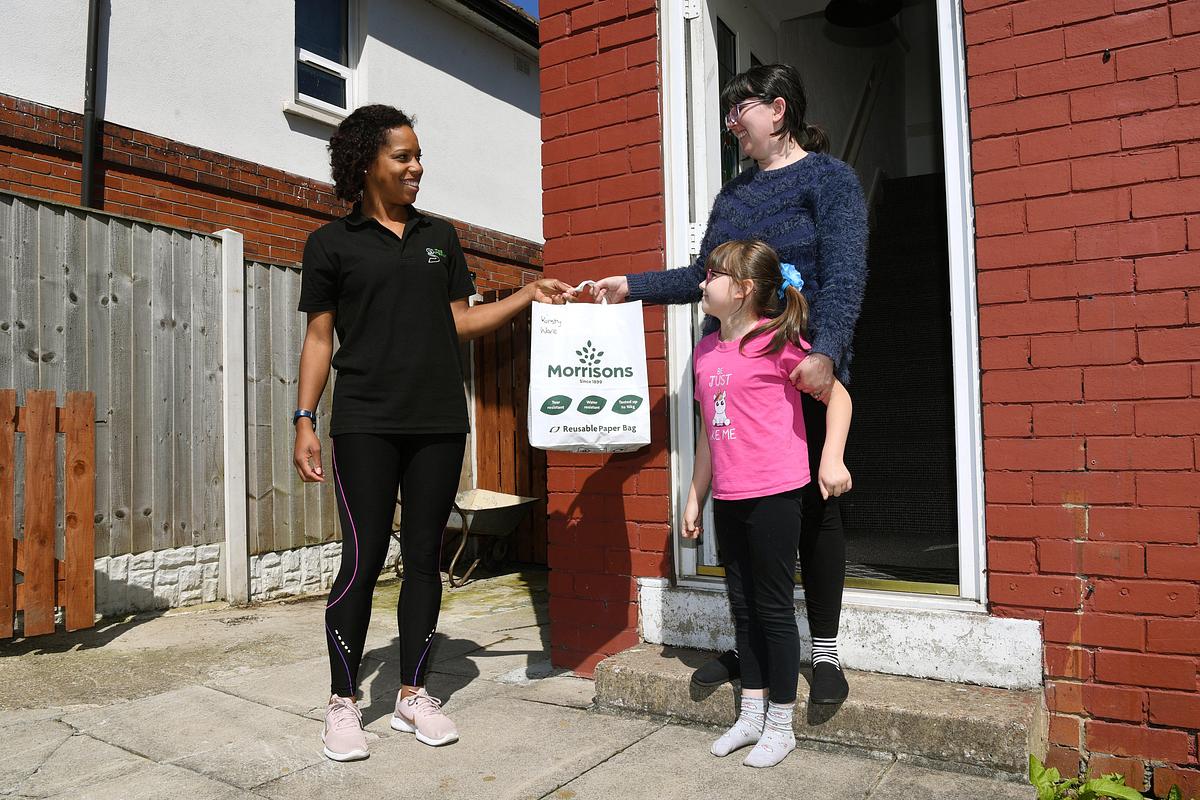
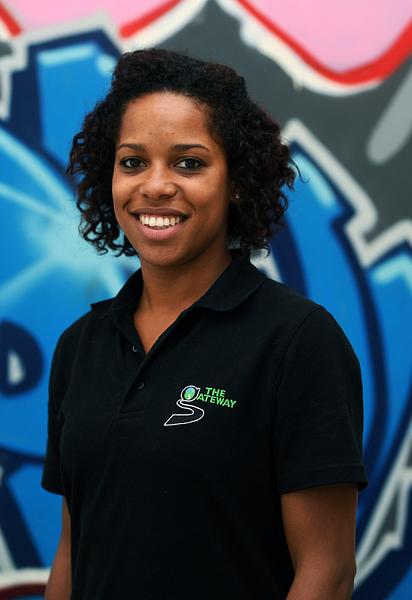

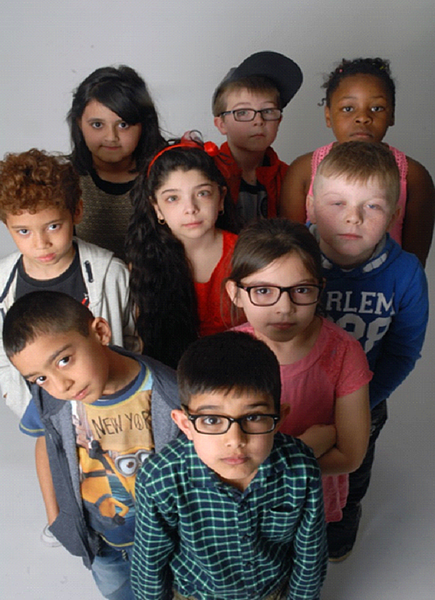

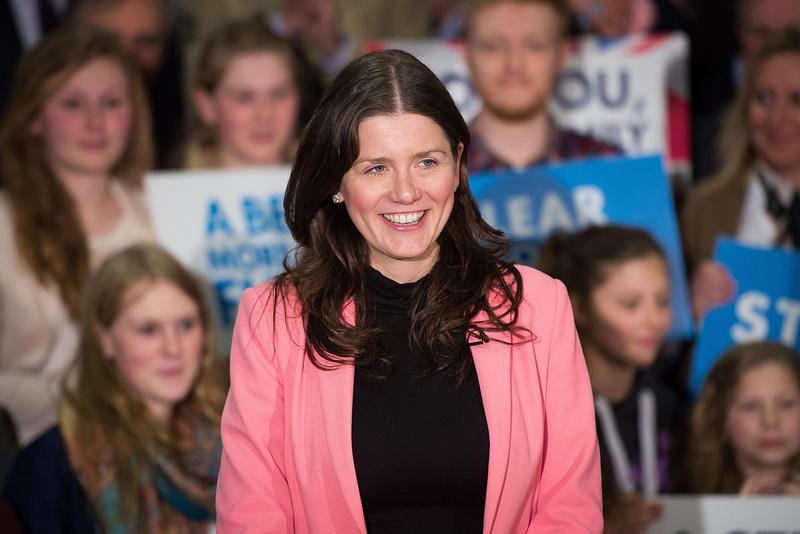
.JPG)
.jpg)
_(1).JPG)


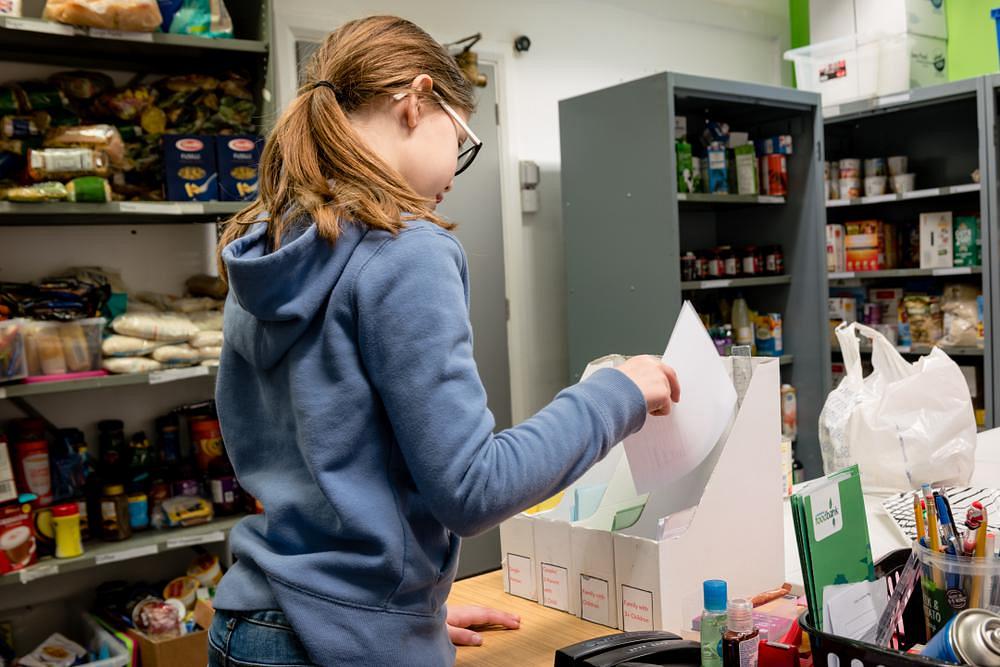
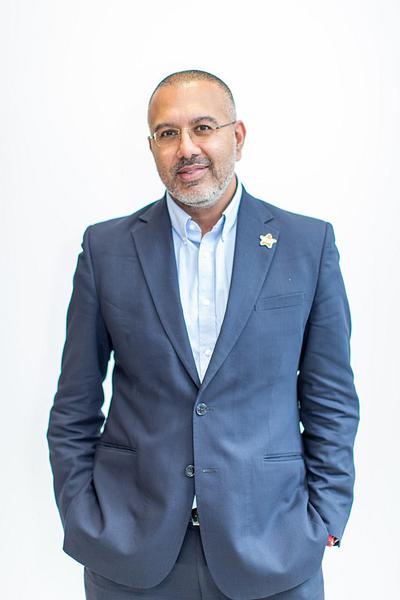
.jpg)
